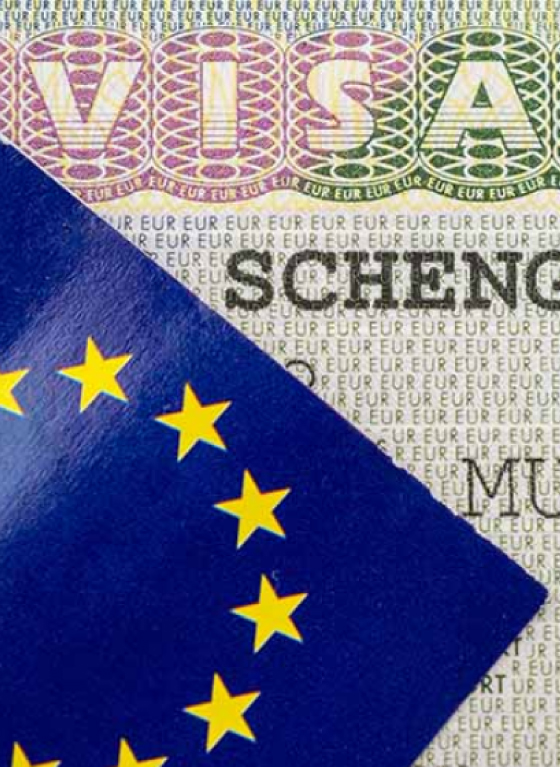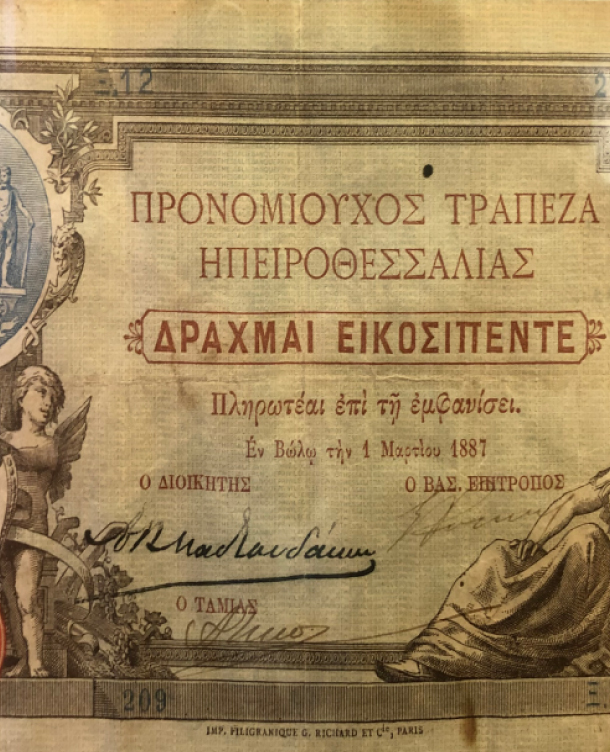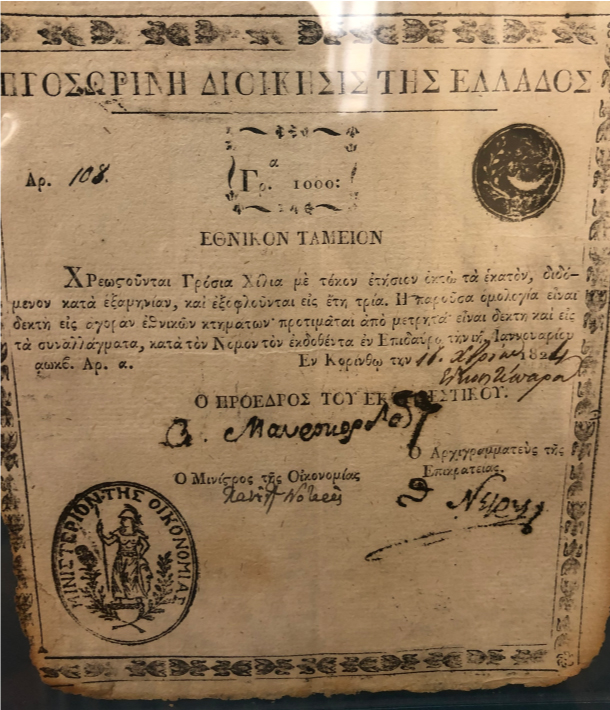golden visa
Why Greece?
As a member state of the EU, Greece offers its residents and citizens a number of reassuring benefits including high levels of safety and security, excellent education opportunities, robust healthcare options, and a dependable rule of law.
-
Visa-free travel within Europe's Schengen Area
-
No requirement to reside in Greece
-
Residence permits can be acquired within 30-60 days
-
Opportunity to rent out the investment property
-
Residence applicable to the whole family (married spouse, children under 21 years old, and parents of the main applicant and spouse)
-
Eligibility to apply for citizenship after seven years of residence
-
Ability to hold shares and receive income from the dividends of a company registered in Greece (but not to be employed in Greece)


Requirement of the Greece Golden Visa Program
The Greece Golden Visa Program is a residence by investment program launched in 2013 that enables non-EU nationals and their family members to obtain permanent residence permits in Greece. The residence permits may be renewed every five years.
REAL ESTATE OPTIONS
- An investment in real estate property with a minimum value of EUR 250,000, plus the applicable taxes.The investment may be made in one or more properties.
- With the amendment of the legislation for the Regional Units of
North, Central and South
Athens and the Municipality of Vari-Voulas-Vouliagmeni of the Region of Attica, the Municipality of Thessaloniki of the Region of Central Macedonia and the Regional Units of Mykonos and Santorini of the Region of South Aegean, the minimum value of a real estate at the time of its acquisition is set at EUR 500.000 and must be paid in full before the submission of the request for the granting of the permanent residence permit of an investor. The investment in these areas is made only in one property. - A 10-year lease agreement for hotel accommodation or furnished tourist residences in tourist accommodation complexes (Article 8 of Law 4000/2001)
- A 10-year time-sharing agreement for hotel accommodation (Law 1652/1986)
Capital Contribution
A capital contribution with a minimum value of EUR 400,000 to a company that has its registered office or establishment in Greece (with the exception of portfolio investment companies and real estate investment companies) for the acquisition of shares in a share capital increase or bonds that are, at the time of issue, admitted for trading on regulated markets or multilateral trading mechanisms that operate in Greece
A capital contribution with a minimum value of EUR 400,000 to a real estate investment company (Article 21 of Law 2778/1999) that will invest exclusively in Greece, for the acquisition of shares in a share capital increase
A capital contribution with a minimum value of EUR 400,000 to a closed-end investment company (Article 5 of Law 2367/1995) for the acquisition of shares or to a closed-end mutual fund (Article 7 of Law 2992/2002) for the acquisition of shares, provided that the aforementioned alternative investment institutions have the intention to invest exclusively in companies that have headquarters or establishments in Greece
The only requirement is that the investment must have a positive impact on national development and the economy. There are no specific sectors you must consider or rules about the location of the project. That said, the most popular industries to choose from in Greece are tourism, food, and beverage, ICT, manufacturing, logistics, pharmaceuticals, and energy.


Shares, Bonds, And/Or Government Bonds
Purchase of Greek government bonds with a minimum acquisition value of EUR 400,000 and residual maturity of at least three years at the time of purchase, via a credit institution established in Greece, which will also act as the custodian of these bonds
Purchase of shares or corporate bonds with a minimum acquisition value of EUR 800,000, which are admitted for trading or are traded on regulated markets or multilateral trading mechanisms, operating in Greece
Purchase of units with a minimum value of EUR 400,000 of a mutual fund incorporated in Greece or another country and with the intention to invest exclusively in shares, corporate bonds, and/or Greek government bonds that are admitted for trading or are traded on regulated markets or multilateral trading mechanisms, operating in Greece
Purchase of units or shares with a minimum purchase value of EUR 400,000 of an alternative investment fund established in Greece or another country of the EU, which intends to exclusively invest in immovable property in Greece
Capital Transfer
Term deposit of a minimum value of EUR 400,000 to a domestic credit institution, for at least one year, with a standing order for renewal.
FAQ
Discover a New Way of Enjoying Your Lifestyle
After residing in Greece for seven years, the applicant may apply for citizenship according to the Greek Nationality Code (Law 3284/2004) via the process of naturalization. This process can only be achieved if the applicant can demonstrate that they have established close ties with the country and that they have successfully integrated into Greek society, both financially and socially. The naturalization process also entails an exam to verify that the applicant has obtained an adequate knowledge of the Greek language.
If you add the amount you need to invest, legal fees, translation fees, and other administrative fees regarding acquiring the necessary documentation, it's hard to give an exact figure but you can expect to pay around 11-12% of the property value considering all costs. Some expenses will include:
- Property transfer tax: 3.09% of the property value (or the objective value, whichever is the highest).
- Notary public fees: 1-1.24% of the property value (or the objective value, whichever is the highest).
- Land registry fee: 0.6%-0.8% of the property value(or the objective value, whichever is the highest).
You are entitled to residency rights regardless of the number of properties you own, provided that their combined value is equal to or greater than €250,000. The law also does not distinguish between commercial and residential properties - it can be a mix of both if you want.
If it is 100% privately owned, you can. However, you will have to provide details of the legal entity and its structure during the visa application stage.
Once the Golden Visa application has been made, your legal representatives can get temporary residence through a power of attorney (without you needing to be present) in 1-2 months. Once again, you must sign the power of attorney in front of the Greek Consulate. A regular notary is not enough. The permanent residency can come in 2 months following the biometrics, which need to be done in person.
You can expect that it will take around 3 months to complete the property acquisition process (presuming you issue a power of attorney for the legal representatives), then another 2 months to get a temporary residence permit. After travelling to Greece to do the biometrics, it can take up to 2 months before you will get your permanent residence cards for you and your family.
Since the law was updated at the end of 2020, the only time you have to travel to Greece is once the application has been approved (to do you and your family's biometrics). You may need to go there to open up a non-resident bank account, although there are alternatives to this.
According to the law, family members of third country citizens entering the country include: a. Spouses, b. The direct descendants of the spouses, who are under the age of 21 (children), c. The direct descendants of the investor or his/her spouse (parents and parents-in-law). Unmarried partners are not considered to be family members.
Dependent children are granted residence permits up to the age of 21. During this time, their residency depends on the sponsor's residency permit. So, if it expires, their dependent children's permit also expires. Once they reach the age of 21, they become entitled to an autonomous residence permit, independent from the resident permit based on investment. They are allowed to reside in Greece on the basis of this permit until age 24.
After this, another renewal is possible only according to regular immigration law. In other words, they would have to apply for citizenship (presuming they have been resident in Greece for the past 7 years) or else there is also the option to transfer the investment to the 24-year old, making them the main investor. This way, you will keep the residency as well as your son/daughter.
No. Unfortunately, the Golden Visa doesn't grant any access to employment (including freelancing), except when it comes to acting as a shareholder, CEO or other board member. So, you would have to set up your own business in the country to rely on income.
Greece is a member of the EU Schengen Zone so the holders of the Greek Golden Visa enjoy the privilege of free movement within the Schengen Zone, without any requirement for further visa applications. The stay in those countries cannot exceed 90 days in each 180-day period.
As previously mentioned, the Golden Visa doesn't grant access to employment within Greece, unless you are receiving a board member or CEO salary. However, there is a flat 7% tax rate for the first 10 years on all foreign income. All foreign income from real estate investments, pensions, and other foreign sourced income will be taxed at this 7% rate. In the case that you are not tax resident in Greece (so, if you are only in Greece for less than 183 days per 12 month period), you will not be liable for tax on your worldwide income.
Yes, there are gift and inheritance taxes based on degree of kinship. The rates are 10% for spouses, parents and children, 20% for other relatives, and 40% for everyone else.
Well, considering that if you take the real estate option, you only have to invest 250,000 euros, as opposed to a capital contribution of 400,000 euros, most people will probably be looking at investment by real estate.
Having said that, investment by capital contribution is an easier process overall with much less requirements. It just depends on what you are trying to achieve with your investment and golden visa (and how much you are willing to invest, of course). If you are not planning on moving to Greece with the goal of citizenship, and instead of having to maintain a property there, you would rather go for intangible assets, then perhaps the capital contribution option is better suited towards you.
It's worth noting however that the average annual ROI is much higher for real estate - typically somewhere between 3-5%. The property values slumped quite a bit following the pandemic, making post 2020 an opportune time to invest. Since Greece is quite a popular tourist destination, it's quite popular for people to use their investment as a tourist rental apartment to earn some income (especially considering the Golden Visa doesn't give you the usual right to employment in Greece.)
Besides the investment amount, the same terms apply in that you have to renew your permit every 5 years, maintaining your investment throughout the duration of your permanent residence. So, in all, it just depends on your personal goals with the project. The capital contribution option is relatively newer and still one to consider, however it's clear the investment by real estate is the top choice of most applicants.
Still have any questions? Enquire Now
